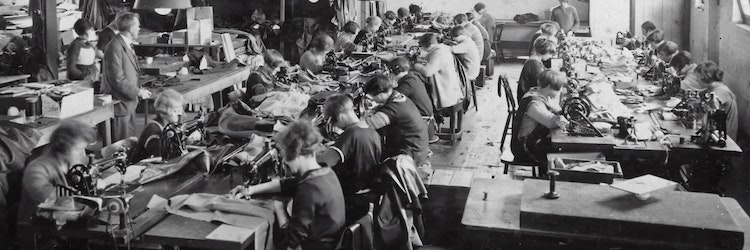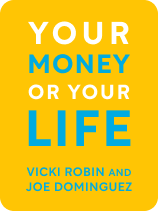

This article is an excerpt from the Shortform book guide to "Your Money or Your Life" by Vicki Robin and Joe Dominguez. Shortform has the world's best summaries and analyses of books you should be reading.
Like this article? Sign up for a free trial here .
Are you familiar with the history of work? Do you know how work can be redefined today—and what difference that can make for you?
In Your Money or Your Life, Vicki Robin and Joe Dominguez share a brief history of work from ancient times, through the Industrial Revolution and the Great Depression, down to the present day. This perspective can help us understand how work relates to our identity and calling.
Read on to learn about the history of work and how work can be redefined today.
The History of Work Is a Guide to Understanding Work Today
Knowing history can help us understand the present. When it comes to work—and the perception of work—the history of work can provide insights to how work relates to our identity and calling today.
Hunter-Gatherer Times and the History of Work
For the majority of human history, humans lived in hunter-gatherer groups. But hunting and gathering isn’t as time-consuming as you’d think.
Modern-day hunter-gatherers average just 15 hours of work per week, far below our “normal” 40. They often work for two days, then take two days off, with work, family time, and leisure blending together. This shows that we need about three hours of work per day for basic survival.
Work During the Industrial Revolution and the Great Depression
Today, we accept the standard 40-hour workweek and think less of people who work part-time. But how did we come to fill our time with so much paid work?
First, the Industrial Revolution sped up the pace of work and shrunk leisure time. People who worked in factories worked long hours doing very repetitive tasks. In 1900, workers averaged 60 hours a week.
A movement emerged calling for a reduction in work time. As a result of this movement, the average workweek dropped to 35 hours. But the Great Depression reversed this progress. Suddenly, many people were jobless, which was pivotal in the history of work.
Now, instead of valuing the right to leisure time, people valued the right to work. People thought poorly of not having a job, or working less than full time, and viewed leisure time as a missed opportunity to contribute to the economy.
Redefining Work Today
Our definitions of work vary because they’re drawn from media, culture, what our parents taught us, and other experiences. A common definition of work is that it’s what we need to do to survive, or “make a living.”
But this definition falls short for two reasons:
- It ignores work we don’t get paid for.
- It values paid work more than unpaid work, free time, and leisure.
Just like with money, we need a definition of work that holds true for everyone consistently: Work is any activity you do that aligns with your values, purpose, and dreams. By this definition, work can include both paid and unpaid activities, freeing you to seek fulfillment beyond paid work.
Looking Beyond Pay
There are many reasons people like to work besides pay—they enjoy learning and mastering new skills, socializing with coworkers, and contributing to the community they live in. But the primary benefit you get from paid work is pay; everything else you can get elsewhere.
People consistently report four things apart from pay that make work satisfying:
- interest in the work
- helpful communication among coworkers
- recognition
- potential to advance into new roles
How Redefining Work Benefits You
Broadening our definition of work to include paid and unpaid work allows you to do two things:
- evaluate whether your work respects your values, purpose, and dreams
- balance work you do and don’t want to do
Finding Your Calling
It’s possible that your greatest joy comes from work that doesn’t pay well, or at all. Acknowledging that you may never get paid well for the work you want to do gives you freedom to pursue it without worrying about pay. To do this, you may need to continue to work your paid job, but you can at least adjust your schedule. Viewing paid work as a ticket to make unpaid work possible helps you find meaning in dissatisfying work while being true to your purpose.
Aligning Work With Your Identity
If someone asks you, “what do you do?” you’re expected to answer with what you do for paid work. But if you make a living doing paid work that doesn’t mesh with how you see yourself, you can answer this question differently.
For example, if you’re a lawyer but you’ve realized that your true calling is as a teacher, you can say you’re a teacher, but that you’re currently practicing law in order to make a living. This response allows others to see you how you see yourself—independent from your current work.
When we have a grasp of the history of work, we can better understand how work intersects with our lives today. Redefining work can change the way we work and live.

———End of Preview———
Like what you just read? Read the rest of the world's best book summary and analysis of Vicki Robin and Joe Dominguez's "Your Money or Your Life" at Shortform .
Here's what you'll find in our full Your Money or Your Life summary :
- The 9 steps to reach financial independence
- How to change your entire relationship with money and live a more meaningful life
- How to align your spending habits with your values, purpose, and dreams






